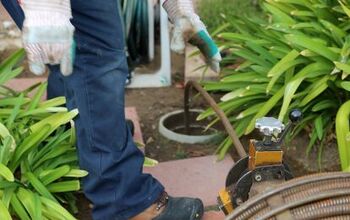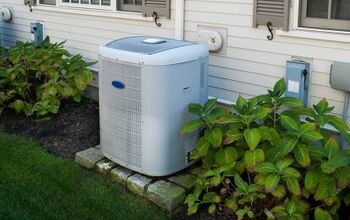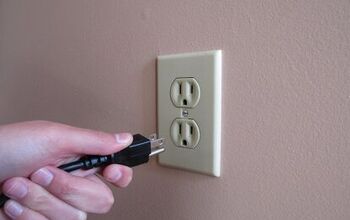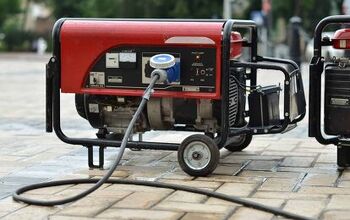Why Does My Basement Smell Like Sewer? (Find Out Now!)

Many homes across the country have a basement. The basement can be finished or unfinished but usually, at a minimum, has some plumbing infrastructure. Unfortunately, sometimes the basement can develop a sewer smell that can be hard to diagnose and even trickier to fix. The first step to eliminating a sewer smell in your basement is to learn where the odor is coming from.
One of the most common sources of sewer smell in a basement is a clogged floor drain or clogged basement plumbing fixtures. Sometimes an evaporated trap or inadequate ventilation can also be to blame for a sewer smell. In the worst-case scenario, a sewer smell in your basement may be the result of a broken or leaking sewer line.
Fixing the problem will first require you to identify the source of the smell. Many possible plumbing fixtures, drains, and traps can cause sewer smell to spread through your basement, so it is essential to diagnose the problem accurately. Many repairs are easy, and homeowners can complete the repair with some minor labor. More significant issues like a leaking or ruptured sewer line will require the use of a professional plumber.
Do You Need Sewer Cleaning Services?
Get free, zero-commitment quotes from pro contractors near you.

What Are Common Causes for Basement Sewer Smells?
The basement is a dreary and cold place, and odd smells and sounds are commonplace. But, recent sewer smells in the basement can be cause for concern. Luckily, there are some widespread causes of sewer smells that are easy to locate and easy to detect. Some of the most common reasons why sewer smells develop in the basement include:
- Clogged drain line
- Damaged drain line
- Broken vents
- Unused drain line
Identifying where the source of the sewer smell is coming from will help you better remedy the situation quickly. Never leave a sewer smell to linger in your basement. Not only can a sewer smell be unpleasant, but it can cause the build-up of methane gas to form, which can be potentially dangerous.
Faulty plumbing can also cause a washing machine to smell like a sewer.
What Happens with a Clogged Drain?
One of the most common reasons for a basement to smell like a sewer is a clogged floor drain. A clogged floor drain is a common problem because debris can become lodged in the U-shaped trap within the drain. When the drain is clogged, sewer smell can build-up can create a blockage. With a blockage, freshwater cannot be flushed down the drain, which can cause the blockage to worsen. When this happens, it can smell like sewer gas and can spread throughout your home.
Can I Plunge the Basement Drain?
An easy fix to repair a blockage in your floor drain is to plunge the drain. You can use an ordinary plunger that you would use on your toilet or sink to help force the blockage through the U-shaped trap, allowing water to flow freely again. This method may not completely solve the issue. Still, it is an excellent easy step to take before spending the money on a professional plumber to remove a clogged basement drain causing sewer smells to form.
How Do You Get Rid of Sewer Smell in the Basement?
If you are trying to eliminate the sewer smell in your basement, you must first determine what is causing the smell in the first place. Different remedies are required for various sewer sources. Some of the common causes and treatments include:
- Dried Water Trap – The S-Shaped or U-shaped pipe that is under the sink is a water trap and is put in place for a reason. A small amount of water always stays in the trap so that sewer gas doesn’t come through the pipe and into your home. A sewer trap is usually located under any sink, including a laundry sink that many people have in the basement. If you don’t regularly use the trap, the water can dry out, and sewer gas can come through the trap. Fix this common problem by simply pouring a gallon of water into the drain.
- Evaporated Toilet Trap – Just like sinks, toilets have a trap that usually holds water to prevent sewer gas from leaking into your home. If you haven’t used your toilet, especially a basement toilet, the water may have evaporated, allowing the sewer gas to sneak through. Simply flushing the toilet should help remedy the situation and add moisture back into the toilet’s plumbing.
- Missing Plug – To prevent sewer gas from coming through the basement floor, your drain has a trap. Like the sink and toilet, the trap will hold water, preventing gas from penetrating your home. Floor drains also have a plug that allows water to bypass the trap. The plug is designed to help stop sewer gas, but the plug is missing in some cases. After removing your floor drain, inspect the area to see if there is a plug. If the plug is missing, simply buy a replacement from the local hardware store.
- Broken Wax Ring – Your toilet is affixed to the floor using a wax ring. The ring is designed to create a solid seal between the toilet and the sewer line. Sometimes, the wax ring can degrade, causing sewer gas to come up through the drain connected to the toilet and leak into your home. A wobbly toilet is usually a good indicator that the wax ring has become damaged. Over time, a wax ring can dry out, causing minor cracks to form. Simply remove the toilet and remove the existing wax ring. Replace the wax ring with a new ring and reinstall the toilet in place.
- Ejector Pit – If you have a laundry room or a bathroom located in your basement, you have an ejector pump. This pump helps to move sewer water through the sewer line. Unlike bathrooms and sinks on the upper level that use gravity to push wastewater through the line, basement fixtures require a pump to generate enough force. The pump works together with a pit. If there is an issue with the pit, such as an improperly sealed or vented construction, the sewer gas smell can collect and seep into your home. Unfortunately, repairing an ejector pit usually requires the help of a professional plumber.
Can Increased Ventilation Help Eliminate the Smell?
Adding increased ventilation to your basement can help to dissipate the smell. Fans and a dehumidifier are excellent tools to use to help both filter and circulate the air. You may also want to add an exhaust vent or an exhaust fan to help bring fresh air into your home while removing tainted air through the vent. Not only will this make a better environment in your basement, but it will also help to make a more comfortable living situation.
Adding natural ventilation is also an option to remove the smell of sewer in your basement. Sometimes, simply opening a window may be enough to bring fresh air into your space and help to eliminate the strong sewer smell in your basement.
Can I Just Leave the Sewer Smell Without Repair?
Unfortunately, a lingering sewer smell can lead to significant health concerns. Sewer smell is primarily the result of an abundance of gasses, like methane. Large quantities or prolonged exposure can be dangerous to your health. For some people, prolonged exposure can lead to nausea, vomiting, dizziness, and headaches. It may even cause suffocation in extreme situations.
Further, if left to build, methane gas can be highly flammable. Having toxic and combustible gas in your home poses a particular danger if you have gas appliances that have a pilot light or an unexpected spark occurs in an area of dense gas concentration. Finding the source of the sewer smell and repairing it quickly is essential to keep you and your family healthy and safe.
Can a Ruptured Sewer Line Cause a Sewage Smell?
Unfortunately, yes, a ruptured sewer line can create a lingering sewer smell. This situation is the worst-case scenario but is still in the realm of possibilities. Signs of a ruptured sewer line can include slow drains, new foundation cracks, and lush areas of the yard. Calling a professional plumber is a great way to start diagnosing and testing for a broken sewer line.
Don’t hesitate to call a plumber if there is a septic smell in your basement.
Do You Need Sewer Cleaning Services?
Get free, zero-commitment quotes from pro contractors near you.

Related Questions
How do you tell if your sewer vent pipe is clogged?
One of the significant causes for sewer smell to develop in the basement is a clogged sewer vent pipe. If left clogged, a vent pipe could create a dangerous situation for you and your family as sewer gas is left to permeate through the home. Some common signs of a sewer vent pipe clog include a gurgling or bubbling sound when you allow water to flow down the drain. Other signs could be a strong sewage smell or a drain that is extremely slow to drain.
Can septic tanks cause odor in the house?
Many homeowners are not connected to the municipal wastewater and sewage systems and rely on a septic tank to store waste. A septic tank is usually designed to keep foul odors and sewage trapped underground, but sometimes leaks can occur within the tank. If a malfunction occurs with your septic tank, it can cause a sewage smell to develop in your home. Just like with municipal sewage, the scent may linger around drains, particularly in the basement where your house’s wastewater is transported to the septic system.

We are a team of passionate homeowners, home improvement pros, and DIY enthusiasts who enjoy sharing home improvement, housekeeping, decorating, and more with other homeowners! Whether you're looking for a step-by-step guide on fixing an appliance or the cost of installing a fence, we've here to help.
More by Upgraded Home Team



















![How To Reset A Whirlpool Cabrio Washer [In 5 Easy Steps!]](https://cdn-fastly.upgradedhome.com/media/2023/07/31/9076531/how-to-reset-a-whirlpool-cabrio-washer-in-5-easy-steps.jpg?size=350x220)







